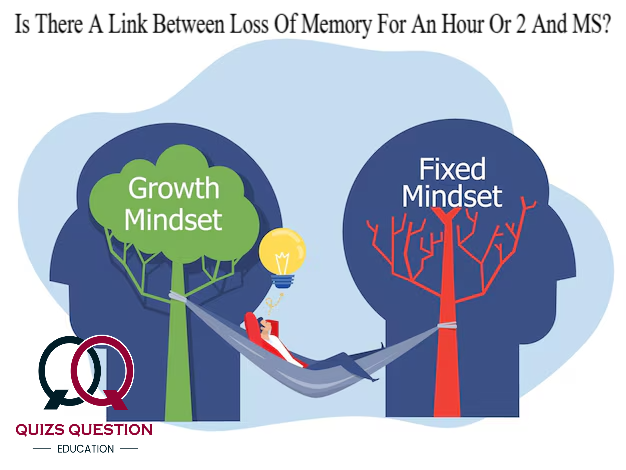Yes, there can be a link between short-term memory loss and multiple sclerosis (MS)—but it’s a bit nuanced.
Here’s how MS might relate to memory loss:
MS is a neurological condition that causes damage to the central nervous system, especially the brain and spinal cord. If MS lesions affect certain areas of the brain, particularly the hippocampus (involved in memory) or frontal lobes (involved in planning and recall), it can lead to:
- Short-term memory loss
- Difficulty concentrating
- “Brain fog” or mental fatigue
What about sudden, short-term memory loss for 1–2 hours?
That’s more unusual. A sudden episode like that might point to:
- Transient global amnesia (TGA) – temporary, often harmless loss of memory
- Seizures
- Mini-stroke (TIA)
- Medication side effects
- Stress or migraine-related issues
MS could contribute if the memory issue is part of a broader cognitive symptom pattern or a flare-up, but sudden memory loss lasting 1–2 hours only isn’t typically the first red flag for MS alone.
Have you or someone you know experienced something like that recently?
Q 1. Which part of the brain is commonly associated with memory loss in MS patients?
A. Cerebellum
B. Hippocampus
C. Medulla
D. Occipital lobe
Show Answer
Answer:-B. HippocampusQ 2. Which of the following symptoms is not commonly linked to MS?
A. Muscle weakness
B. Vision problems
C. Numbness and tingling
D. Sudden amnesia lasting 1–2 hours
Show Answer
Answer:-D. Sudden amnesia lasting 1–2 hoursQ 3. Memory problems in MS are usually caused by:
A. Heart problems
B. Lesions in the brain
C. Kidney malfunction
D. Low blood sugar
Show Answer
Answer:-B. Lesions in the brainQ 4. A person with MS is more likely to experience which of the following cognitive symptoms?
A. Complete loss of long-term memory
B. Difficulty with short-term recall and attention
C. Instantaneous recovery from memory loss
D. Hallucinations
Show Answer
Answer:-B. Difficulty with short-term recall and attentionQ 5. What condition can cause brief memory loss (1–2 hours) unrelated to MS?
A. Asthma
B. Psoriasis
C. Transient global amnesia (TGA)
D. Diabetes
Show Answer
Answer:-C. Transient global amnesia (TGA)Q 6. In MS, which imaging method is commonly used to detect brain lesions that might affect memory?
A. X-ray
B. CT scan
C. MRI
D. Ultrasound
Show Answer
Answer:-C. MRIQ 7. Which of the following best describes “cognitive fog” in MS?
A. Hallucination and confusion
B. Sudden paralysis
C. Aggression and anxiety
D. Mental fatigue and forgetfulness
Show Answer
Answer:-D. Mental fatigue and forgetfulnessQ 8. Which type of MS symptom affects memory, attention, and information processing?
A. Sensory symptoms
B. Cognitive symptoms
C. Visual symptoms
D. Motor symptoms
Show Answer
Answer:-B. Cognitive symptomsQ 9. True or False: MS-related memory problems typically involve losing one’s identity or personal history.
A. True
B. False
Show Answer
Answer:-B. FalseQ 10. Sudden, short-term memory loss should be evaluated for which of the following possible causes besides MS?
A. Migraine
B. Mini-stroke (TIA)
C. Seizure
D. All of the above


Leave a Reply